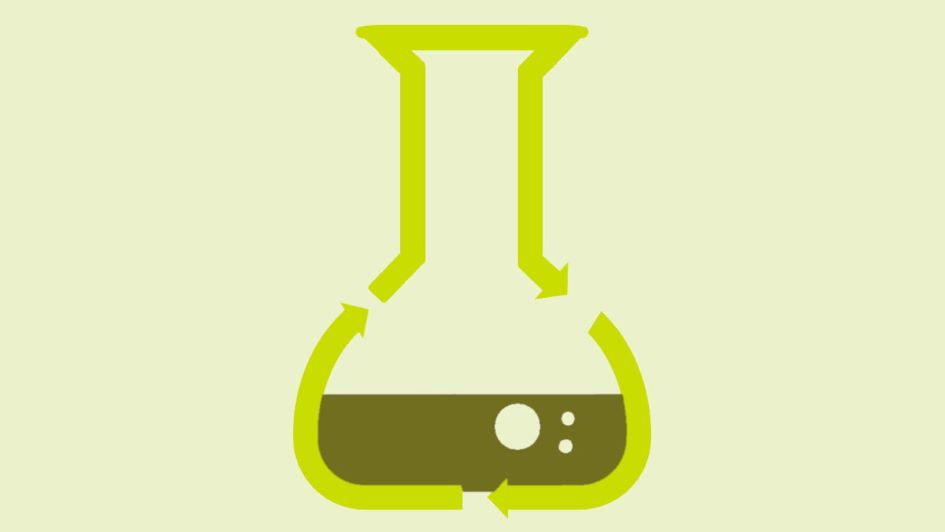
Leaders from across the world were in Glasgow for COP26, the United Nations Climate Change Conference, to revisit the objectives of the United Nations Paris Agreement and negotiate how we avert the worst impacts of climate change.
Our actions over the next decade are critical in shaping what kind of world we, and future generations, will inhabit. The science is showing us that climate change, biodiversity loss and pollution are clear and present dangers.
Sustainability goals at the ICR
As a research-led organisation, we recognise that we have an opportunity to contribute to a world that is prosperous, inclusive, and environmentally sustainable. We recognise that now is the time for decisive action, and our staff agree: our 2021 staff survey showed 83 per cent think sustainability should be a key priority for the ICR.
Gordon Stewart, Chief Operating Officer at the ICR, said:
“Our staff and students were clear in the Attitude Survey that the climate crisis isn't a peripheral issue for the ICR – but one that needs to be front and centre of our planning and prioritisation.”
We have been working on sustainability improvements for many years and this year we have significantly stepped up our efforts. This is very much a journey, and a collaborative effort involving all of our teams across all departments and divisions.
Last year, we established our Sustainability Advisory Group to guide our strategic direction. The group has representation from across the ICR’s leadership, our scientific staff and professional services, to ensure a joined-up approach that reflects the breadth of priorities in the organisation.
Crucial in determining our vision for sustainability is alignment with the United Nations Sustainable Development Goals (SDGs) – a blueprint to achieve a better and more sustainable future for all.
We have adopted the SDGs as a framework to bring carbon reduction, equality and diversity, waste minimisation, sustainable construction, staff engagement and other elements under one strategy.
Responding to the climate emergency
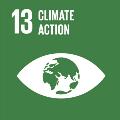
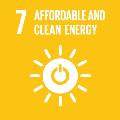
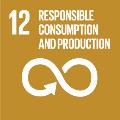
Image: Three UN Sustainable Development Goals we have adopted as a framework to respond to the climate emergency: Climate action, Affordable and clean energy, and Responsible consumption and production
Earlier this year the ICR joined the UK government and 34 other universities in declaring a climate emergency.
We have already made progress in addressing our carbon footprint, and we will be adopting new targets in line with guidance from the Science Based Targets Initiative across the whole of the ICR and our supply chain, to ensure that our reduction efforts are in line with what climate scientists say is needed for a liveable future world.
Improving equality and diversity in science
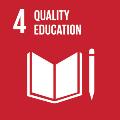
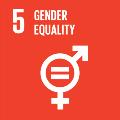
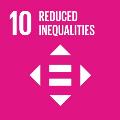
Image: Three UN Sustainable Development Goals we have adopted as a framework to improve equality and diversity in science: Quality education, Gender equality, Reduced inequalities
Work to improve equality and diversity is vital for both sustainable development and to help address historic structural imbalances in science around gender, race and other characteristics. We are striving to improve opportunities for groups who have been traditionally disadvantaged in scientific research, such as women and those from ethnic minority backgrounds.
So far, we have achieved the Silver Award for Women in Science from Athena SWAN, the global framework to improve gender equality within higher education.
Our Race Ethnicity and Cultural Heritage forum and Race equality: Beyond the statements working group are leading conversations and work to build a more representative ICR – from increasing diversity and representation across our senior leadership, to improving our recruitment processes.
Our joint ICR and The Royal Marsden Disabilities Network seeks feedback to continue to improve the provisions and adjustments we make for staff and students with disabilities.
Sustainable laboratory practices


Image: Two UN Sustainable Development Goals we have adopted as a framework to make our laboratory practices more sustainable: Responsible consumption and production, Climate action
Efficiency and waste minimisation are key to running a sustainable laboratory, and we are exploring ways that we can embed sustainable lab practices across the ICR to use resources more effectively.
Part of this is about reducing our energy consumption, which is a behavioural challenge as much as a technical one: switching off devices when not in use and storing samples at the appropriate temperature can make a big difference.
We have already highlighted how researchers in our new Centre for Cancer Drug Discovery are helping to reduce waste and lower their carbon footprint, including taking part in My Green Lab’s Freezer Challenge in 2022, which champions best practice in cold storage management – particularly with energy-consuming ultralow temperature freezers.
As with most universities and research institutions, the majority of our carbon footprint is in our supply chain. We will be closely examining what lab consumables and equipment come into the organisation, to reduce over-ordering, minimise waste and make more sustainable choices for our labs.
As well as looking for efficiency improvements, we want to embed sustainability across our whole supply chain, starting off by evaluating our procurement processes against ISO 20400 – the international standard for sustainable procurement. We’re alert to industry developments, and supplier innovations that bring us closer to sustainable systems.
We are also offering all staff the option to undertake a training course in sustainability fundamentals, accredited by IEMA (the Institute of Environmental Management and Assessment).
And we look forward to spotlighting sustainability at the ICR during our Scientific Officers Technical conference in November, where researchers across the organisation will be hearing about the latest developments in sustainability from our suppliers, and given the opportunity to workshop sustainability improvements from the ICR.
Our new Chief Executive Professor Kristian Helin is clear on the importance of this work:
“As a world-leading research organisation it is critical that we face up to climate change, the single greatest threat to global health. We know that cancer research is currently a highly carbon-intensive activity, and we are prioritising addressing the environmental impact of our vital work to assure its long-term future. We are a pioneering and highly innovative organisation, and can play a leading role in crafting a more sustainable future for our research.”
comments powered by